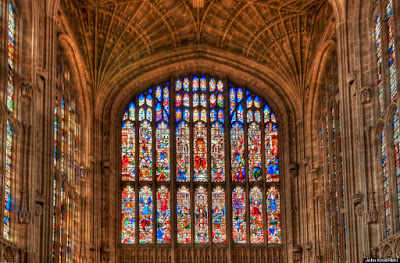Nearly all the wisdom we possess, that is to say, true and sound wisdom, consists of two parts: "the knowledge of God and of ourselves.”
These words from the opening paragraph of John Calvin’s Institutes of the Christian Religion mark a problem when it comes to the knowledge of God. If it is true that wisdom consists in the “knowledge of God and of ourselves,” we are at once led to ask, “But who has such knowledge? Who truly knows God or knows himself?” If we are honest, we must admit that as long as we are left to ourselves and our own abilities, the only possible answer is “No one.” Left to ourselves, not one of us truly knows God. Nor do we know ourselves adequately.
What is the trouble? Clearly, we do not know ourselves because we have first failed to know God. But why don’t we know God? Is he unknowable? Is the fault his, or is it ours? Obviously, it is more appealing to us to blame God. But before we jump to that conclusion we should be conscious of what is involved. If the fault is ours, although that fact in itself may be uncomfortable, then at least it can be corrected, for God can do anything. He can intervene. On the other hand, if the fault is God’s (or, as we might prefer to say, if the fault is in the very nature of things), then nothing at all can be done. The key to knowledge will inevitably elude us, and life is absurd.
In his book The Dust of Death, Os Guinness makes this point by describing a comedy skit performed by the German comedian Karl Vallentin. In this routine the comic comes onto a stage illuminated only by one small circle of light. He paces around and around this circle with a worried face. He is searching for something. After a while a policeman joins him and asks what he has lost. “I’ve lost the key to my house,” Vallentin answers. The policeman joins the hunt, but the search eventually appears useless.
“Are you sure you lost it here?” asks the policeman.
“Oh no!” says Vallentin, pointing to a dark corner. “It was over there.”
“Then why are you looking here?”
“There’s no light over there,” answers the comic.
If there is no God or if there is a God but the failure to know him is God’s fault, then the search for knowledge is like the search of the German comedian. Where the search should be made, there is no light; and where there is light there is no point in searching. But is this the case? The Bible declares that the problem is not God’s but ours. Therefore, the problem is solvable. It is solvable because God can take, and actually has taken, steps to reveal himself to us, thereby providing us with the missing key to knowledge.

